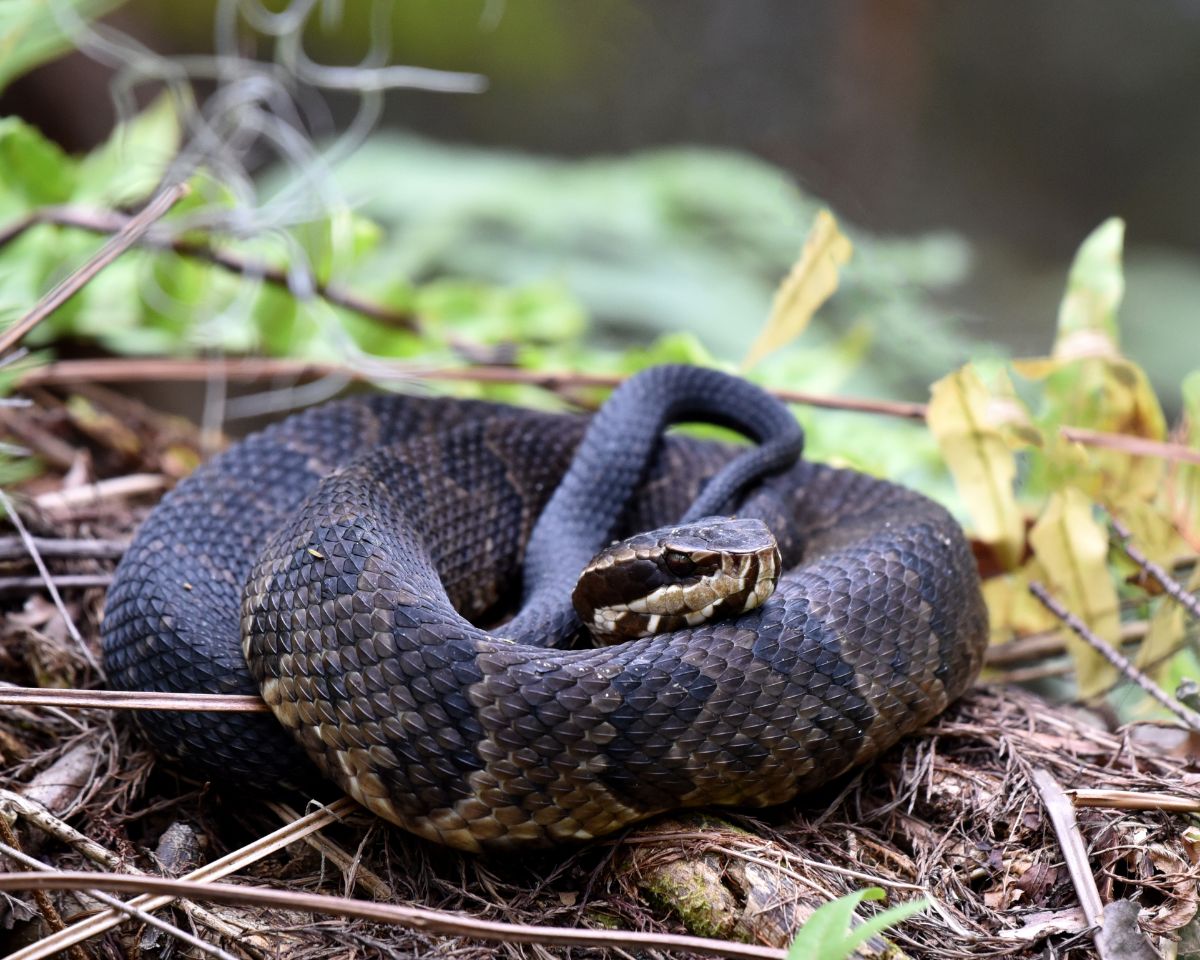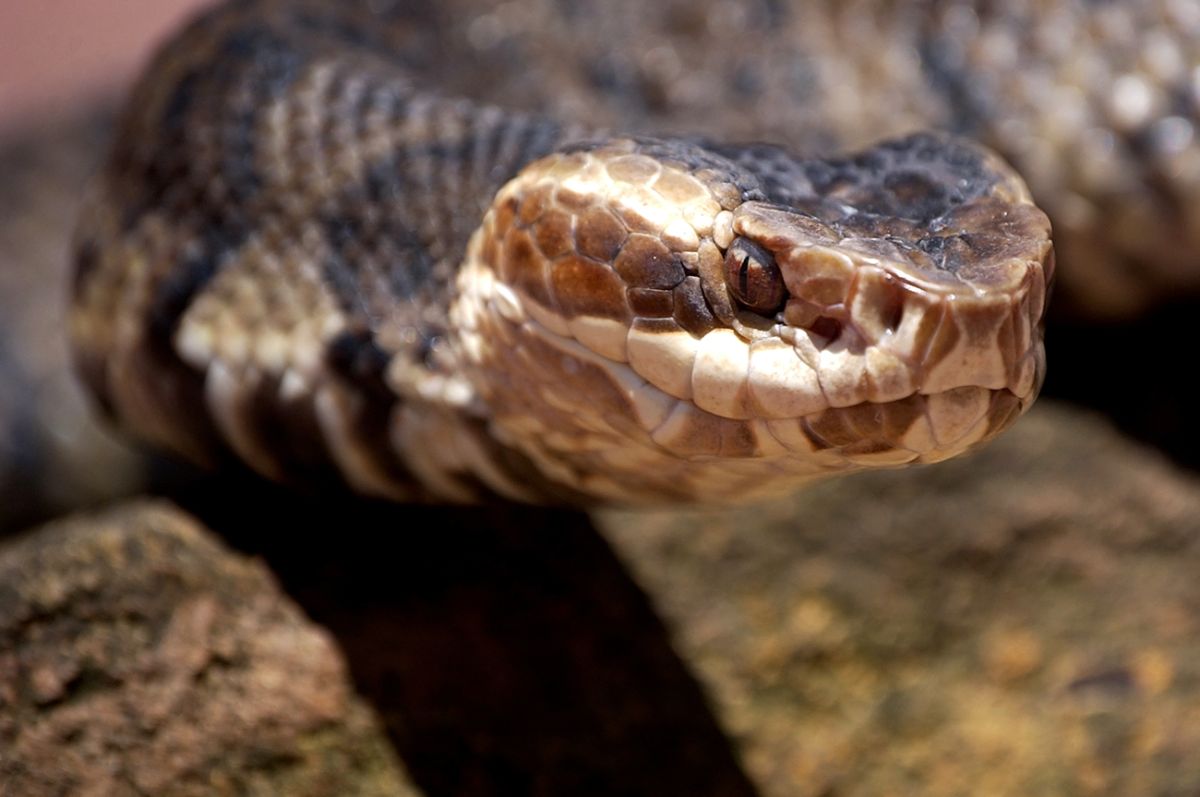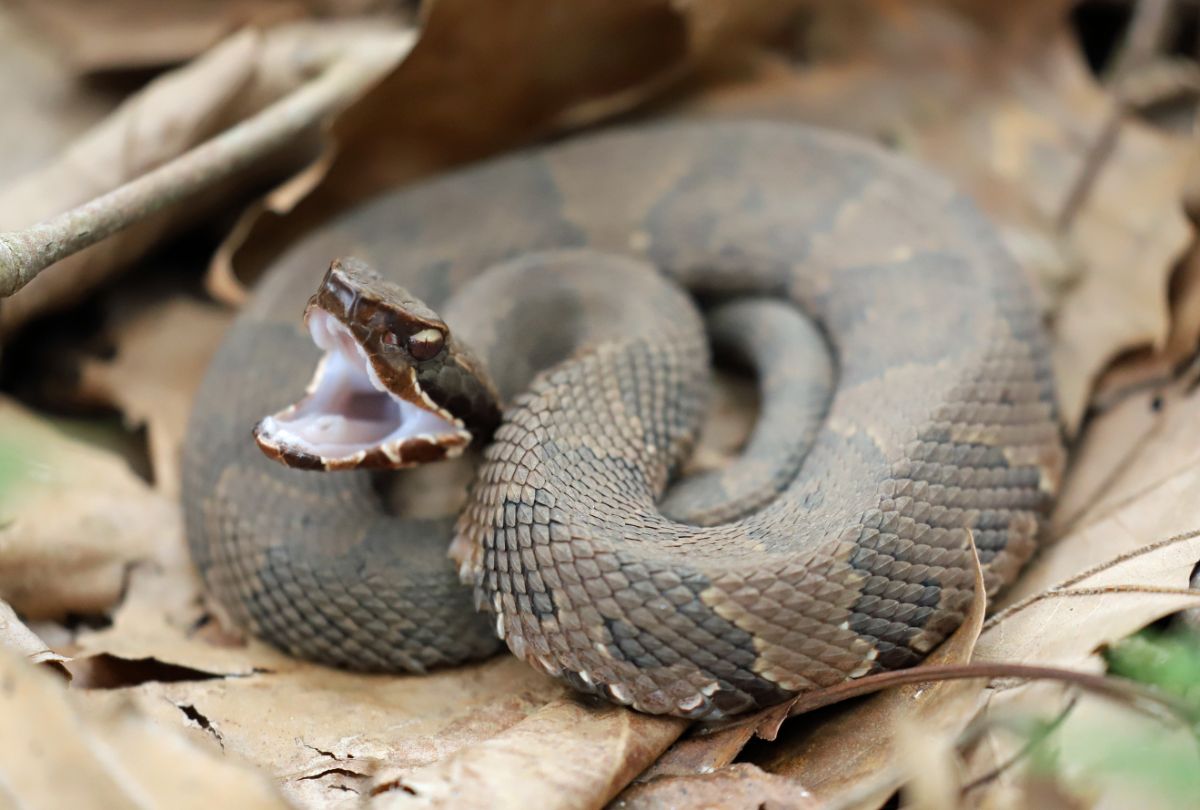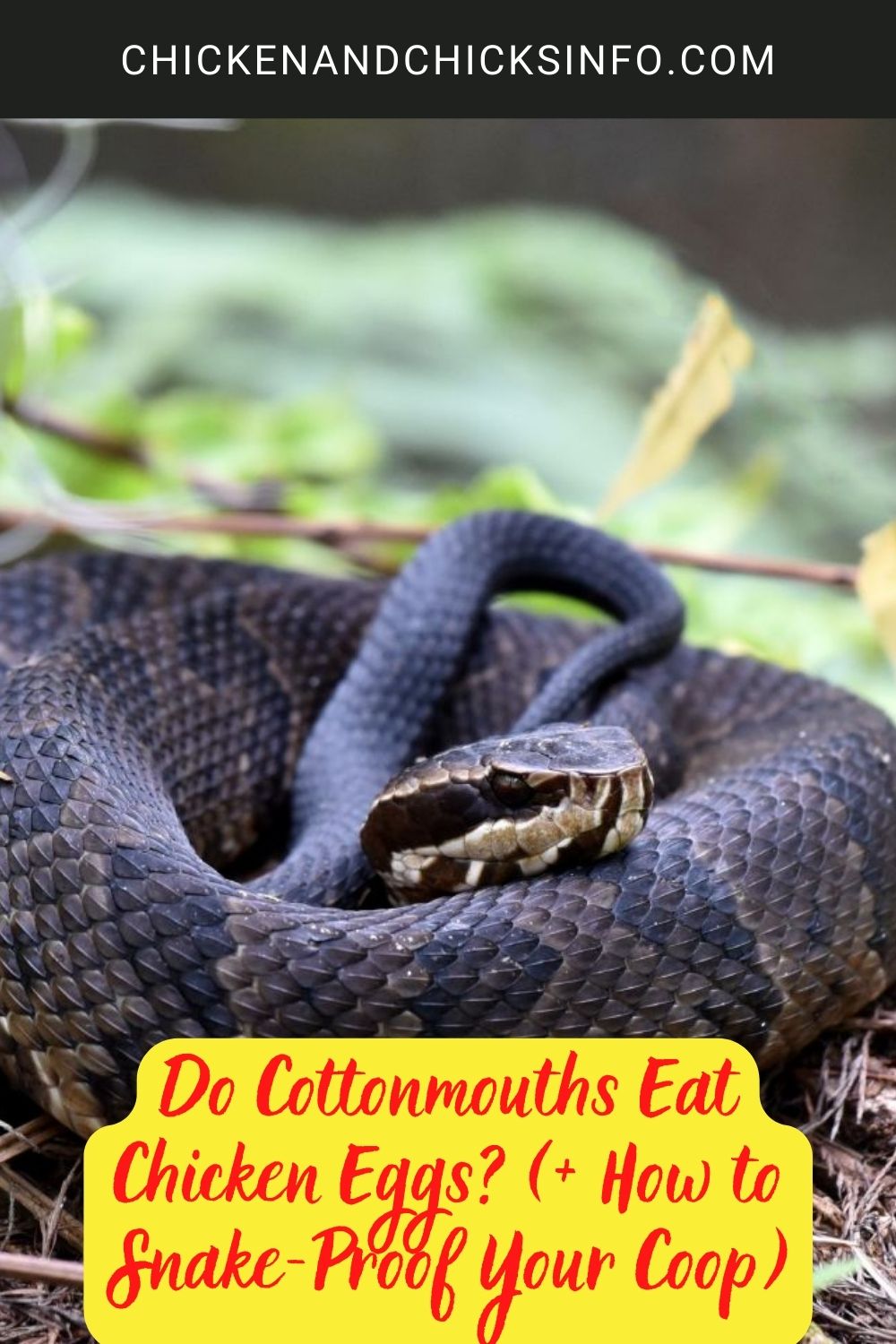
Cottonmouths are opportunistic feeders, they are known to eat everything from small rodents, mammals, and lizards, to chicken eggs.
If a Cottonmouth is able to find a way into your chicken’s coop, there is a good chance they will eat their eggs.
On a more serious note, Cottonmouth snakes are also capable of killing and eating a chicken, depending on the size.
Therefore, as a backyard chicken owner, it’s essential that you snake-proof your chicken’s coop and their run to be on the safe side.
Jump to:
Do Cottonmouths Eat Chicken Eggs?
Yes, Cottonmouth snakes do eat chicken eggs. If presented with the opportunity, a Cottonmouth will swallow a chicken egg whole.
Of all the snakes commonly found across North America, I’m not ashamed to admit that Cottonmouths scare me a little.
In case you haven’t seen one; Cottonmouths are venomous, semiaquatic, grow to around 4 feet (122cm) long, and have thick, muscular, dark brown bodies.
Sounds pretty scary, don’t they?
They’re called Cottonmouths because when they feel threatened, a Cottonmouth opens its mouth wide to display its white fleshy insides, and it’s a terrifying sight.
Cottonmouths can easily swallow a whole chicken egg. But worse than this, they are also able to kill chickens with their venomous bite.
Depending on the size of the Cottonmouth and the chicken, they may also be able to swallow and eat the chicken whole.
Even if the chicken is too big to eat, it’s not uncommon for a Cottonmouth to kill and attempt to eat it.
Some chicken owners enter their coop in the morning to find dead chickens with wet heads and necks.
This is often a sign that a snake has attempted to eat and swallow the chicken, but was either unable to fit its jaws around it or was disturbed.
Do Chicken Eggs Attract Snakes?

If you know - or at this point suspect - a snake is eating your chicken’s eggs, you need to find out why and how it’s happening.
A common misconception is that chicken eggs attract snakes. I don’t think this is the case unless eggs are breaking inside the coop.
If eggs are breaking, a snake’s powerful sense of smell might be able to pick it up. Otherwise, it’s going to be the smell of the coop and chickens that is attracting them.
The bottom line is that snakes are opportunistic scavengers. They are always searching for food, and both eggs and chickens make for nutritional meals.
Your best line of defense is to snake-proof your coop and chicken run by plugging every hole and using a good quality mesh.
There are various snake repelling products on the market, but honestly, reviews are mixed. There is no substitute for making sure snakes can’t get into your coop in the first place.
What Kind of Snake Eats Chicken Eggs?
As a general rule of thumb, if a snake is big enough to swallow an egg, there is a good chance they’re going to do so.
There are dozens of different species of snakes across North America, some of the most common that are known to steal eggs and even attack chickens are:
- Cottonmouths (as covered in this article)
- Various types of Rattlesnake
- Milk snakes
- Copperheads
- Pythons
- Rat snakes
- Egg-eating snakes
- King snakes
- Chicken snakes (this encompasses several species of snakes)
- To name just a few
The important (and somewhat impressive) thing about snakes is that they’re able to unhinge their jaws to eat foods much bigger than their mouths.
I’m sure you’ve seen a picture of a snake with a huge bulge in its body before.
This will have been after they’ve eaten an animal that you would have assumed to be an impossible task to fit through their jaws.
So, if you see a small species of snake that looks fairly innocent and unable to eat one of your chicken’s eggs, don’t be fooled!
Do Chickens Scare Away Snakes?

The answer to this question isn’t a straightforward ‘yes’ or ‘no’.
In some instances, chickens can successfully scare or keep snakes away from their coops. It certainly helps if you have a rooster in your flock.
If you only have hens, some breeds are more aggressive than others and better at defending themselves.
Guinea Fowl, for example, are pretty tough and are known to fight off snakes. Some large breeds like Brahmas and Orpingtons are pretty tough, too.
You always have to be careful if you know that there is a possibility of snakes coming into contact with your chickens, however.
It’s crucial you identify what species of snake you have in your area, and research how dangerous they are.
Just because a snake is too small to eat a chicken whole, it doesn’t mean it will not bite and inject a chicken with venom and kill it.
In fact, many snakes will try and eat a chicken - or any other animal - that is far too large for them before realizing it’s not possible.
Many owners have entered their coops in the morning to find dead chickens with wet heads and necks.
A sign that a snake has attempted to swallow the chicken but not been able to fit it in and given up!
In Summary
Cottonmouths are crafty snakes that will eat chicken eggs and even kill and eat chickens given the opportunity.
If you have the slightest reason to believe that Cottonmouths inhabit your area, make sure you double-check that your chicken’s coop and run areas are snake-proof.
Resources
Cottonmouth snakes: Facts about water moccasins - LiveScience.com





